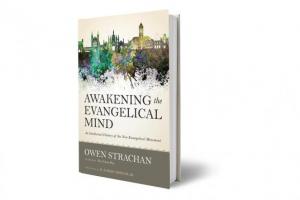Not necessarily, no. Actually, it often helps them.
See this fantastic piece by Chris Horst for Christianity Today’s stimulating “This Is Our City” project. There are companies, Horst makes clear, that are not only turning a profit–they’re helping people. Many of us know that businesses perform such functions, of course; our common sense and life experience has given us abundant evidence of the way that businesses help communities. I think of my Little League baseball field, for example, in Machias, Maine. Who paid for it? The government? Nope. It was the local pizza place, the area savings bank, the barbershop we all went to. So many small business owners give back. (Hunter Baker made this point poignantly a few months ago.) The stereotypes about greedy capitalists often fall terribly short.
Businesses can be predatory, yes. But it’s not in the best interests of many to act in this way, right? They’ll–pardon the punnery–lose business. Horst’s article shows this, and moves us past the “Can Christians do meaningful work in the secular workplace, or should everyone be a missionary?” discussion that we sometimes bog down in. He gives us tangible results from Christians like Brian Rants who are working in business from a love for Christ and his image, mankind.
Here’s what we learn about Rants’s initial distaste for business:
Alongside reimagining business vocationally, Rants also started reimagining the role of business itself. What he once viewed as an adversary to the war on poverty, he now sees as a vital ally. His perception early in his career was that big business, multinational corporations, and globalization worked againstthe poor.
“Once I actually studied this in graduate school, I was shocked,” Rants shared. “Not only is business not ‘the bad guy,’ it’s the primary reason poverty has decreased so substantially over the past 50 years. Nothing has undermined poverty, tyrannies, and injustice more than open and free markets. It is the only system proven to actually do that over the long-term.”
Don’t miss this. As Horst shows, Yale University has shown that capitalism has contributed in incredible ways to global uplift. Yes, you read that right:
Yale University and The Brookings Institution released a staggering study bolstering Rants’s conviction. According to the study, in 1981, 52 percent of the world’s population was unable to provide for their basic needs like housing and food, living below the “extreme poverty line.” By the end of 2011, just 30 years later, the number had plummeted to 15 percent. The reasons they cited for the unprecedented drop in poverty are “the rise of globalization, the spread of capitalism and the improving quality of economic governance.” This, the researchers describe, is the “potent combination” behind the tumbling poverty levels.
If we could hit a button and download this information into every American brain, we would save ourselves a lot of trouble and controversy. Read all of Horst’s piece, and if you can, pass it along. This is really valuable–and basically incontrovertible–stuff, and so is the video I included at the top of this post. It’s by a brilliant researcher named Hans Rosling, and it elegantly destroys the myth that the Industrial Revolution has harmed people. If you measure the effects of the IR by rising life expectancy, to give just one factor, you see that the growth of capitalism across the world has resulted in unprecedented, never-seen-anywhere-ever health on a global scale.
This, by the way, is directly counter to the myth-making engine of the mighty Karl Marx and his disciples. Marx, as historians like Paul Johnson have shown, was a tenacious cherry-picker of data. Marx predicted that capitalism would harm people, when in reality (despite being flawed like any system) it has helped billions and billions of people. Riesling’s work alone rebuts Marx’s contentions, to say nothing of the aforementioned Yale study.
What did you learn in college, if you went to many a creditable American school (including, shamefully, some Christian schools)? That globalization has been horrible for people, right? It surely has had some regrettable effects, but the common line on globalization is flatly wrong, as Yale and Brookings show. Ask your average Chinese business owner if they would rather harvest rice all their lives–and have their kids do the same–or if they would prefer to own a business, however small, and send their kids to school. Honestly, is that even a fair set of choices? And yet different departments of our haute intellectual institutions attack capitalism. Yes, faculty members attack capitalism while the college’s development experts fund their healthy salaries by shrewdly investing the endowment in the stock market. Cue ironic laughter…now.
So much of a good life is about listening to wisdom, hewing to common sense. And yet because of the fall, the human intellect thirsts for untruth and chases after silliness. The solution is in deconstruction, but not deconstruction of wisdom. Deconstruction of the deconstructers. (This sounds like a Transformers movie. Don’t–please, please don’t–tell Michael Bay.)
Something remarkable is happening among evangelical Christians, as Horst’s illuminating piece shows. We are rediscovering a doctrine of vocation (Tim Keller is really helping, as this video shows). It’s exciting to see (the Values & Capitalism project of the American Enterprise Institute is encouraging along these lines). We’re moving part canards and stereotypes. We’re seeing that work is good, that the gospel and the Christian worldview comport with and are not hostile to vocational labor, and that we can be a witness in innumerable fields.
To work for the common good, and to do it from an explicit love for Christ and his salvific work, is to glorify the Lord, and to be in business with the world’s superpower par excellence: the kingdom of God.











